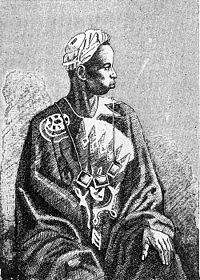
Back Гриот Bulgarian Jèli BM Griot Catalan Griot Czech Griot German Griot Spanish Griot Basque Griootti Finnish Griot French Griot Galician


A griot (/ˈɡriːoʊ/; French: [ɡʁi.o]; Manding: jali or jeli (in N'Ko: ߖߋߟߌ,[1] djeli or djéli in French spelling); also spelt Djali; Serer: kevel or kewel / okawul; Wolof: gewel) is a West African historian, storyteller, praise singer, poet, and/or musician.
Instead of writing history books, oral historians tell stories of the past that they have memorized. Sometimes there are families of historians, and the oral histories are passed down from one generation to the next. Telling a story out loud allows the speaker to use poetic and musical conventions that entertain an audience. This has contributed to many oral histories surviving for hundreds of years without being written down.
The griot is a repository of oral tradition and is often seen as a leader due to their position as an advisor to members of the royal family. As a result of the former of these two functions, they are sometimes called bards. They also act as mediators in disputes.
- ^ Faya Ismael Tolno (September 2011). "Les Recherches linguistiques de l'école N'ko" (PDF). Dalou Kende (in French). No. 19. Kanjamadi. p. 7. Retrieved 17 December 2020.
© MMXXIII Rich X Search. We shall prevail. All rights reserved. Rich X Search